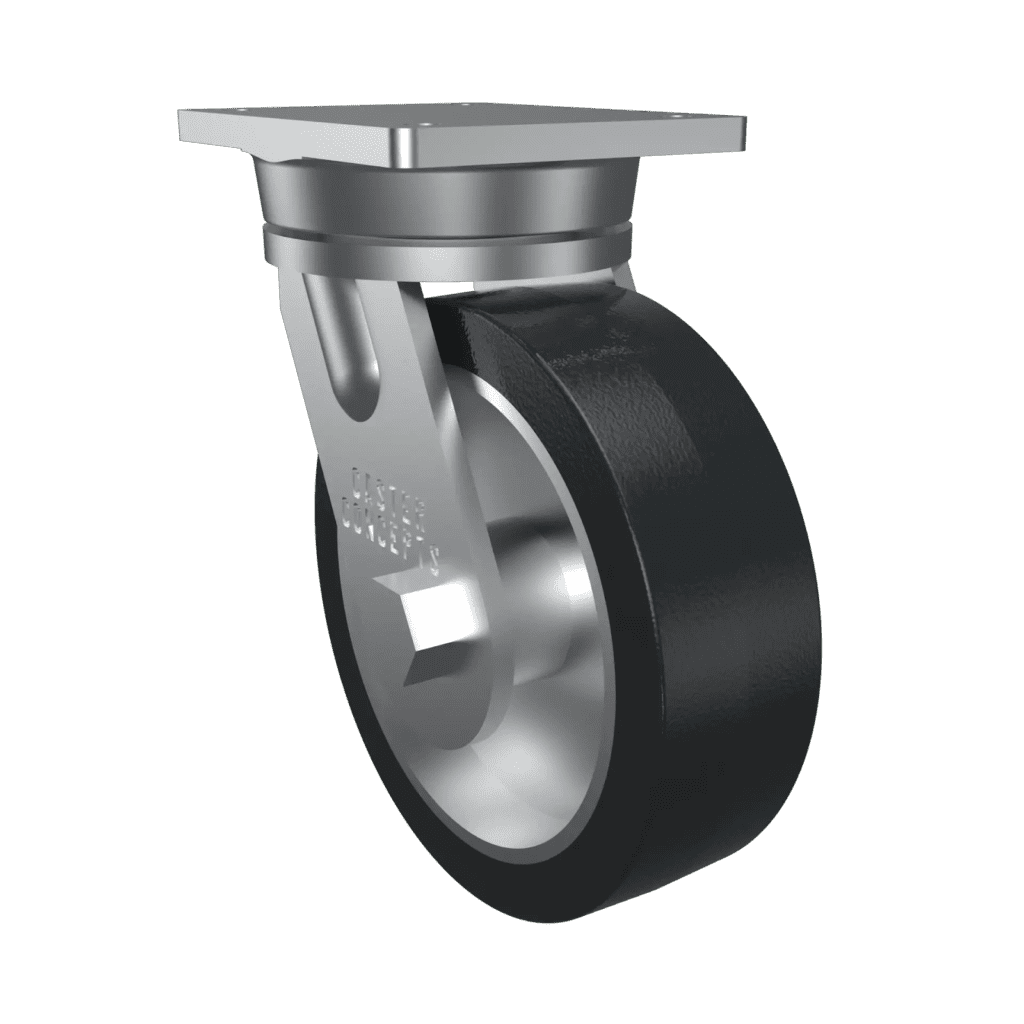

Overexertion injuries are incredibly common. In fact, they are so common that they comprise the majority of workers compensation claims. If you are concerned about your employees exerting themselves, it may be time to examine your caster wheels. Believe it or not, simply changing the casters on your carts and racks can have a huge impact on the amount of force required to move them. Here’s how.
At its simplest, friction can be defined as the force that stops one surface from easily sliding against another. Anything that moves along another surface creates at least some friction, and this is true of caster wheels against flooring, grass, pavement, or any other surface. Though some friction is necessary, and employees may lose control of heavy loads without it, too much friction can be problematic. The more friction between the casters and the surface below, the more difficult it is for workers to start the load moving or maneuver the load around a corner. Because of this, in order to prevent injury, it is important to utilize casters that can reduce friction, thereby reducing human energy expenditure.
When you think about reducing the friction between caster wheels and the ground or surface, you might think that using a slicker caster material will solve the problem. Though this can certainly help, particularly when it comes to highly textured surfaces, this is not the only consideration. Oftentimes, it is not the surface itself that generates excess friction and makes loads hard to move – it’s the debris that wedges itself between the wheel and that surface. This means that friction-reducing casters should not only utilize slick materials, but they should also be designed in such a way that they can effectively push debris out of the way during operation.
Today’s ergonomic caster wheels – such as those in the TWERGO line – can help you achieve up to a 25% reduction in the force required to start a load rolling. The thick, tapered tread not only reduces friction, but it also dispels debris in its path. This alone can have a tremendous impact on reducing employee fatigue and risk for injury, and in turn, it can reduce workers compensation claims and insurance policy rates, as well.
Friction reduction can benefit your production in more than one way, too. Not only does it reduce the risk of overexertion injury, but it can also improve speed. Friction reducing casters are perfect for line delivery carts which are notorious for excess friction – especially as more carts are added to the chain. When this friction is reduced, the line delivery cart can move more quickly, even with a heavier load. These casters are also ideal for motorized cars that move in fixed positions; the reduction in friction ensures that carts move freely, and it can also reduce energy requirements.
The amount of human energy required to move heavy loads can be substantial, and in some cases, it can even cause injury. Reducing friction is beneficial not only for your employees, but also for your company. It can save you money in terms of workers compensation and insurance premiums, it can improve employee morale, and it can even significantly boost productivity.